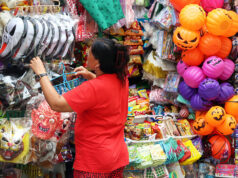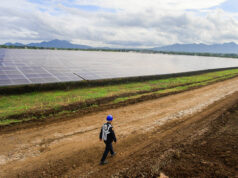DTI to add more construction materials for certification
THE Department of Trade and Industry (DTI) said it will be adding more construction materials to the list of products subject to mandatory certification and labeling standards to support the government’s aggressive infrastructure campaign.
Trade Undersecretary for the Consumer Protection Group Ruth B. Castelo said the DTI, through its Bureau of Product Standards (BPS), is currently reviewing its current rules and the list of products to be included.
“By the end of the year we’ll have more products in the mandatory list,” Ms. Castelo told BusinessWorld in Pasay City last week, noting that the proposed materials are “mostly for construction.”
“We will increase it because of the building program,” she added.
She said pole line hardware and polyvinyl-chloride pipes are under consideration while reinstating flat glass, plywood and galvanized iron sheets — items removed from the list in 2015.
The glass industry appealed that the removal of the material from the list has encouraged the influx of cheap imports, posing safety risks.
TQMP Manufacturing Glass Corp. said it is expecting glass to be reinstated by the last quarter of the year at the latest.
“It is the consumers that will benefit the most, by ensuring the quality of flat glass that are being installed in residences and commercial buildings,” said Nonito B. Galpa, Executive Vice-President of TQMP’s subsidiary, Pioneer Float Glass Manufacturing, Inc., in a text message over the weekend.
Pioneer was formerly known as AGC Asahi Glass. TQMP bought the firm from AGC Asahi Glass Ltd., a world leader in glass, chemicals and high-tech materials.
As to the plans of constructing a new float furnace — part of its over P5-billion expansion plan to nearly triple its production capacity, Mr. Galpa said the firm first has “to make sure that the situation is favorable for us.”
“Having flat glass reverted to the mandatory standard status, other concerns like technical smuggling, must also be addressed,” he added.
The BPS is tasked to implement mandatory product certification for various building and construction, electrical and electronics, chemical and consumer products under its product certification scheme.
Such products cannot be sold or distributed in the Philippines without the necessary Philippine standard or import commodity clearance mark.
As of April 2018, there are 85 products the BPS deems critical to safety and required to undergo mandatory certification. — Janina C. Lim



